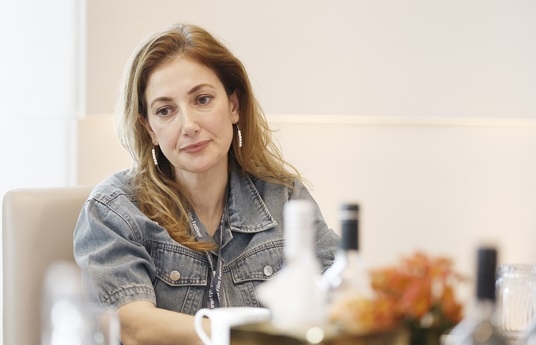Palestinian Filmmakers Voice Concerns Over Mounting Challenges While Lauding Support from Doha Film Institute
Nov 21, 2024

- Facing more infrastructure, funding and distribution challenges, Palestinian filmmakers share deep concern about future projects
Doha, Qatar; November 21, 2024: Facing intense infrastructure, funding and distribution challenges, Palestinian filmmakers at the 2024 Ajyal presented by the Doha Film Institute, shared their deep concern about future projects, even as they took pride in the commitment of young and established directors to pursue their passion.
The Palestinian filmmakers – acclaimed directors Mohammad Bakri and Rashid Masharawi, actor and Head of this year’s ‘Made in Qatar’ jury Saleh Bakri, and emerging filmmakers Mohammed Almughanni and Laila Abbas – said films from Palestine are important not only to address misinformation but also to encourage healthy dialogue and understanding about Palestine and its people.
Veteran filmmaker Mohammad Bakri, whose film Janin Jenin paints a stark picture of filmmaking challenges in Palestine: “There is no infrastructure for the film industry in Palestine, but there are individuals who do their utmost. In every geographical area where Palestinians exist there are different struggles, but we all share dreams of liberation, independence and dignity.
In Janin Jenin, Bakri returns to the Jenin refugee camp 20 years after his original documentary ‘Jenin, Jenin.’ The film weaves together testimonies from survivors of Israel’s recent military operation and reflections on the continuing impact of the 2002 invasion.
He added: “I salute the Doha Film Institute at the Ajyal Festival and respect their efforts in organizing such an important festival without extravagance, and with consideration for what is happening to our people in Gaza.” Bakri said that finances his films has been incredibly difficult but at the end of the day, “when I completed Janin Jenin, I looked at myself in the mirror, and I feel proud!”
Echoing similar challenges, acclaimed director Rashid Masharawi, whose films have been applauded at festivals around the world, said it took three years for him to do another film, even after being recognized at Cannes. “Each time I start it is as if I am working on my first feature. The reality is that each film takes more time, effort and planning to realize.”
He says it is important to make films even though “cinema is not a push of a button for immediate change. But everyone should participate, and I am trying as much as I can through my work to share the Palestinian narrative and refute the false narrative of the Occupation. Cinematic work makes me feel I am not helpless but rather an active participant in the change.”
Masharawi said that his new film, Passing Dreams, which opened Cairo International Film Festival last week, was shot across Jerusalem, Bethlehem, Haifa, West Bank and across Palestine. “All these places are disconnected, and we required to ask for permission to move between them. But we make it happen, and what inspires and moves me is that despite these challenges young people in Palestine continue to make good films.”
Masharawi is the curator of From Ground Zero (Palestine), a collection of 22 short films created by filmmakers from Gaza, providing an intimate glimpse into the daily lives, struggles, and hopes of people living under siege. “What is happening in Gaza should be shown everywhere,” he said. “The massacre is different from anything that has happened before because it is being broadcast live. We should not get used to this. And what is killing us is not only the Israeli Occupation but also Arab silence.”
Actor Saleh Bakri said that while cinema does not heal the wound, “it gives meaning and helps shake off the dust of helplessness.”
Highlighting the everyday realities in Palestine, Bakri said “the very idea of a Palestinian city, has been destroyed. In the past, we had the great Arab artists come to Haifa from all over the world to perform. Today, my own natural audience cannot even enter a cinema.”
Mohammed Almughanni, the director of An Orange From Jaffa (Palestine, Poland, France), about a young Palestinian seeking to reunite with his mother by crossing an Israeli checkpoint, said the “power of cinema bridges the gap between us and the world, and between the people of Palestine. It is a way of expressing what is inside us, but the film industry in Palestine is very difficult because the circumstances make cinema a luxury that people cannot afford.”
Laila Abbas, whose DFI-supported film Thank You For Banking With Us (Palestine, Germany, KSA, Qatar, Egypt), is screening at Ajyal said that cinema asks difficult questions and creates dialogue. “I shot my film before the events of October 7. I wanted to stay away from politics, but this is impossible in the Palestinian context because that would mean detaching from reality. And I did not want Israel to also occupy my story.”